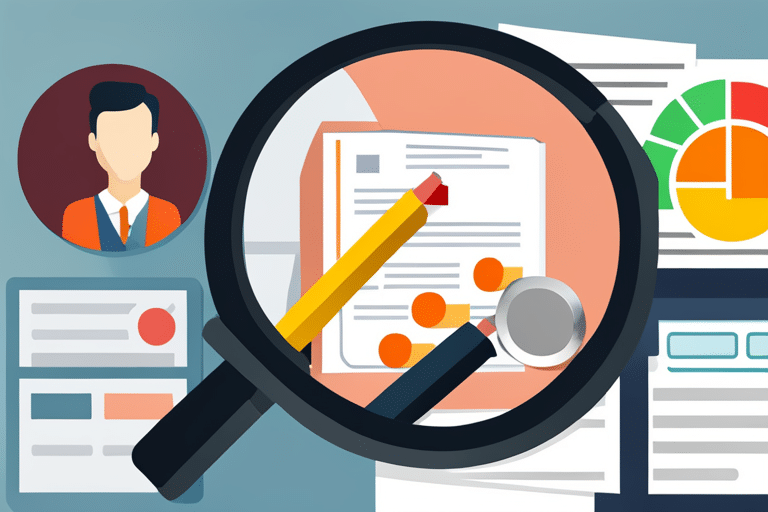You’ve checked your credit report and, oh no! Errors have crept in. But fear not! In this article, we’re going to show you how to correct those pesky mistakes and get your credit back on track.
From identifying common errors to crafting a clear dispute letter, we’ll guide you through the process with wit and creativity.
So buckle up, because it’s time to take control of your credit report like a true master!
Key Takeaways
- Regularly checking and monitoring your credit report is crucial for maintaining financial health.
- Identifying and correcting errors in your credit report is essential to getting your credit score back on track.
- Contacting the credit bureau and providing supporting documentation is the first step in resolving credit report errors.
- If the dispute remains unresolved, consider escalating the issue to a higher authority, such as consumer advocacy organizations or an attorney specializing in credit reporting disputes.
Understanding the Importance of Checking Your Credit Report Regularly
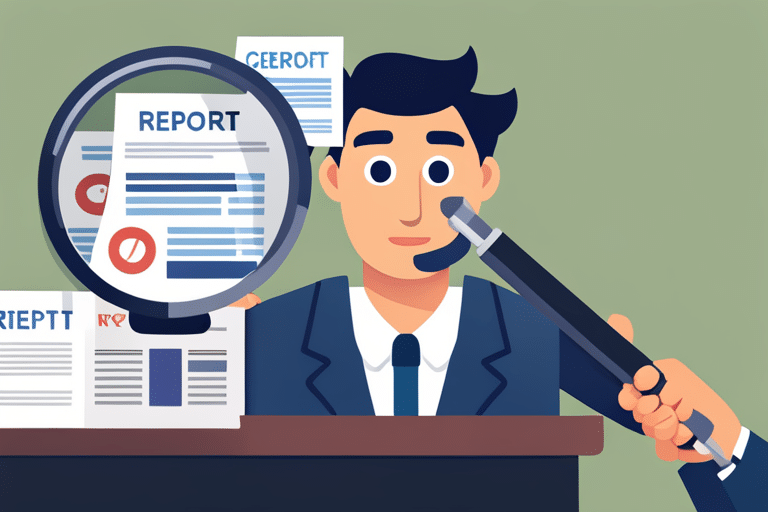
You should always be checking your credit report regularly to understand its importance in maintaining financial health. Think of it as giving your credit score a check-up, just like you would with your favorite doctor or mechanic. It’s all about keeping things in tip-top shape, my friend.
Now, let’s talk about improving that credit rating of yours. Your credit report is like a report card for your financial life – it shows lenders how responsible you are with money. By checking it regularly, you can identify areas where you can make improvements and boost that credit score.
Think of it this way: checking your credit report is like taking the pulse of your financial well-being. It’s a way to ensure everything is running smoothly and there are no surprises lurking around the corner. Plus, it gives you an opportunity to catch any errors before they become big problems.
Speaking of errors, let’s transition into the next section about identifying common errors in your credit report. Just like unicorns and free pizza, errors on a credit report are rare but not impossible to find. By knowing what to look for and how to dispute inaccuracies, you can keep your credit report squeaky clean and maintain that healthy financial heart of yours.
Identifying Common Errors in Your Credit Report
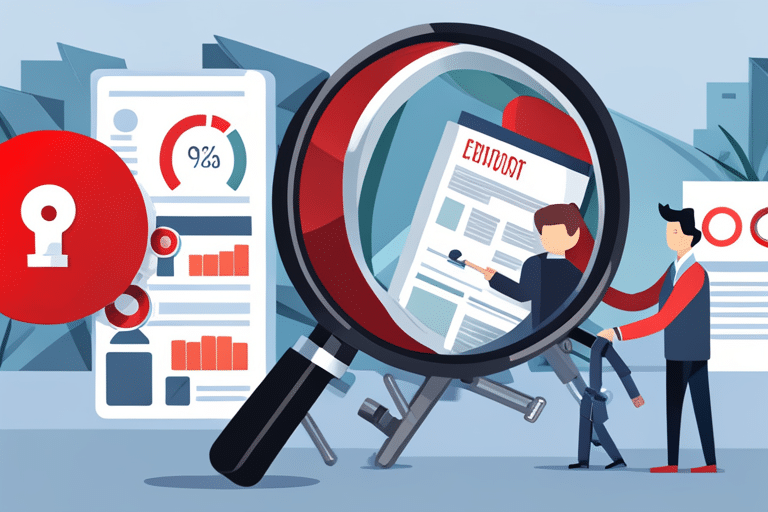
So, you’ve checked your credit report and now it’s time to dive into the exciting world of common credit report errors!
Buckle up, because we’re about to embark on a journey filled with misplaced identities, mysterious debts, and the occasional misspelled name.
Get ready to play detective as we uncover the secrets lurking within your credit report and put those inaccuracies in their place!
Common Credit Report Errors
To fix mistakes in your credit report, start by checking for common errors such as incorrect personal information or unauthorized accounts.
Now, we all make mistakes – like that time you accidentally wore mismatched socks to an important meeting. But when it comes to your credit report, those errors can have a bigger impact than you think. Imagine if someone else’s unpaid bills were showing up on YOUR report! Talk about a fashion disaster.
But fear not! You have the power to dispute these errors and get your credit score back on track. The disputing process may seem daunting, but with a little perseverance and some savvy strategies, you can conquer it like a boss.
Identifying Inaccurate Information
Now, take a close look at the information on your credit report to identify any inaccuracies that could be negatively impacting your financial standing. Don’t worry, we’re here to make this process as painless as possible.
So grab a cup of coffee, put on your detective hat, and let’s dive in!
Credit reporting agencies aren’t infallible (shocking, I know), and mistakes can happen. Look out for incorrect personal information like misspelled names or wrong addresses. Keep an eye on accounts that don’t belong to you or payments that were reported late when they weren’t.
Once you’ve spotted these discrepancies, it’s time to gather the necessary documentation to support your dispute and set the record straight.
Gathering the Necessary Documentation to Support Your Dispute

So, you’ve found some errors on your credit report and now it’s time to gather the necessary evidence to dispute them. Don’t worry, Sherlock Holmes, you don’t need a magnifying glass or a deerstalker hat for this investigation.
Just grab your trusty pen and paper (or laptop, if that’s more your style), because we’re about to dive into the exciting world of required supporting dispute documents and gathering evidence for your dispute.
Required Supporting Dispute Documents
You’ll need to provide supporting dispute documents to correct errors in your credit report. But don’t worry, we’ve got you covered! Here’s a handy table that outlines the required supporting dispute documents you’ll need to gather:
| Supporting Documents | Description |
|---|---|
| Proof of Identity | A valid government-issued ID such as a driver’s license or passport. |
| Proof of Address | Recent utility bills or bank statements with your name and current address. |
| Disputed Item Documentation | Any evidence that supports your claim, such as receipts, invoices, or correspondence. |
| Credit Report Copy | A copy of the credit report highlighting the errors you are disputing. |
| Letter of Explanation | A well-crafted letter detailing the discrepancies and explaining why they are incorrect. |
Gathering Evidence for Dispute
To effectively dispute inaccuracies, it’s essential to gather the necessary evidence. Think of yourself as a detective, searching for clues to uncover the truth about your credit report.
Start by reviewing your statements and payment history. Look for any discrepancies or errors that could be dragging down your score.
Then, dig deeper by requesting copies of supporting documents such as receipts or canceled checks. These additional pieces of evidence can strengthen your case when submitting a dispute letter.
Remember, you’re not just fighting against incorrect information; you’re fighting for your financial future! So, put on your Sherlock Holmes hat and start gathering all the evidence you need to set the record straight and ensure accuracy in your credit report.
Let’s solve this mystery together!
Contacting the Credit Bureau to Initiate a Dispute
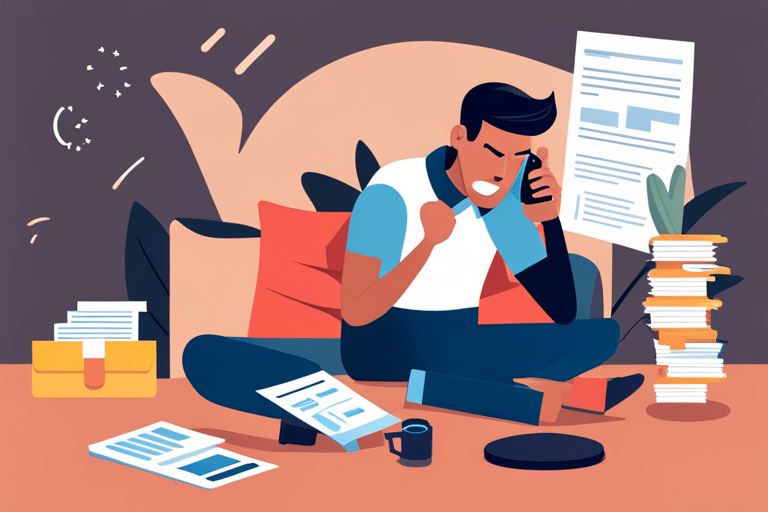
First, reach out to the credit bureau to begin the dispute process and correct any errors on your credit report.
Ah, the joy of discovering mistakes on your credit report! It’s like finding an unexpected bonus in your bank account. But fear not, my friend, for you have the power to set things right. All it takes is a little bit of dispute resolution magic.
When it comes to disputing errors on your credit report, reaching out to the credit bureau is your first step towards victory. Think of them as the gatekeepers of all things credit-related. They hold the key to unlocking a world where accuracy reigns supreme.
Now, before you pick up that phone or send that email, let me share a little secret with you: be prepared for some back-and-forth banter. The credit bureau may request additional information or evidence from you to support your claim. Don’t worry; it’s just their way of ensuring everything is in order.
Remember, dear master of disputes and guardian of credit report accuracy, persistence is key. If at first you don’t succeed, try again (and maybe even one more time after that). Keep pushing until those errors are banished from your record.
And now that you’ve laid the foundation for dispute success by contacting the credit bureau, it’s time to move on to crafting a clear and concise dispute letter. Get ready; we’re about to dive into the deep waters of written communication in our quest for financial fairness!
Crafting a Clear and Concise Dispute Letter

Now that you understand the importance of a clear and concise dispute letter, let’s focus on what key information to include in your letter. Writing style matters, my friend! When it comes to effective communication, you want your words to flow like a smooth jazz melody. So buckle up and get ready to craft a letter that will make those credit bureaus sit up and take notice!
First things first, start with a proper salutation. Address your letter to the correct department at the credit bureau – don’t just say ‘Hey there!’ like you’re chatting with your buddies at the bar.
Next, state the purpose of your letter right off the bat. Be crystal clear about what errors you’ve identified in your credit report and what actions you are requesting. Don’t leave room for confusion or misinterpretation – remember, this is not an episode of ‘Lost.’
Use specific details when describing the errors. Don’t just say ‘There’s something fishy going on.’ Instead, be thorough and precise: ‘On page 3 of my credit report from [credit bureau], it states that I have an outstanding balance of $500 with XYZ Bank. However, I closed that account two years ago.’
Provide any supporting evidence or documentation along with your dispute letter. You wouldn’t expect Sherlock Holmes to solve his cases without any clues, would you? So help out those busy folks at the credit bureau by including copies of receipts or statements that prove your case.
Wrap up by politely requesting prompt action and expressing gratitude for their attention to this matter. Remember, manners go a long way in getting results!
Now go forth and write that killer dispute letter! With these tips in mind, you’ll be well on your way to clearing up those pesky errors on your credit report. Happy writing!
Following Up on Your Dispute and Monitoring Progress

Don’t forget to keep track of any updates or responses from the credit bureau while following up on your dispute. It’s like a game of cat and mouse, trying to catch any changes in your credit report. But fear not, for I shall guide you through this process with wit and mastery!
To monitor dispute progress, create a simple table to help you track the resolution. Imagine it as a detective’s board, with clues and evidence neatly organized for your eyes only. Here’s an example:
| Date | Action Taken |
|---|---|
| 1/15/22 | Dispute letter sent |
| 1/20/22 | Credit bureau response received |
| 1/25/22 | Supporting documents submitted |
As you can see, this table allows you to visualize the timeline of events and actions taken. It helps paint a picture in your mind of how things are progressing.
Now that we have our detective tools ready, let’s talk about tracking dispute resolution. Just like monitoring progress, keeping tabs on the resolution is crucial. You want to know if the credit bureau has cleared your name or if they’re still playing hardball.
To do this effectively, set reminders on important dates such as when you expect a response from the credit bureau or when supporting documents need to be submitted. This way, nothing slips through the cracks.
Dealing With Unresolved Disputes: Escalating the Issue
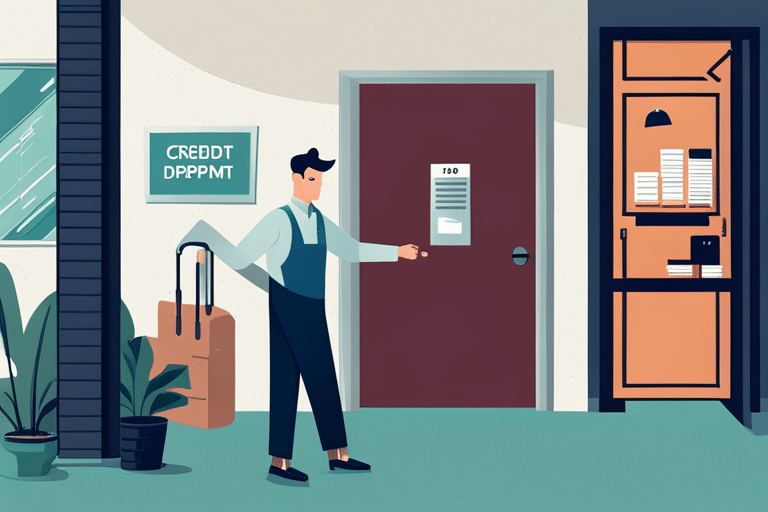
If the dispute remains unresolved after following up with the credit bureau, it may be necessary to escalate the issue to a higher authority. Don’t worry, you’re not alone in this battle against credit report errors. Sometimes, even the credit bureaus need a little nudge to get things moving in the right direction.
So, if you find yourself facing an unresponsive credit bureau, it’s time to kick things up a notch and seek legal assistance.
Escalating a dispute can seem like entering a whole new level of complexity, but fear not! You have options at your disposal. First things first, consider reaching out to consumer advocacy organizations or non-profit groups that specialize in helping individuals navigate through these murky waters. They can provide guidance on how best to proceed and might even offer free or low-cost legal consultations.
Another option is seeking the help of an attorney who specializes in credit reporting disputes. Now I know what you’re thinking – hiring an attorney sounds expensive and daunting. But fret not! Many lawyers offer free initial consultations where they’ll assess your case and let you know if there’s potential for success before diving into any costly legal fees.
Remember, escalating a dispute doesn’t mean you have to go straight to court. It simply means involving someone with more expertise who can advocate for your rights and negotiate on your behalf with those stubborn credit bureaus.
Maintaining Good Credit Habits to Prevent Future Errors

Maintaining good credit habits ensures a lower risk of future mistakes. Let’s be real, nobody wants to make mistakes when it comes to their credit score. It’s like trying to juggle flaming torches while riding a unicycle – not exactly the easiest task in the world. But fear not, my friend! I’m here to give you some witty and creative tips on how to maintain your credit score and keep your credit report accuracy on point.
First things first, pay your bills on time. I know, adulting can be tough sometimes, but this is non-negotiable. Late payments are like little red flags that scream ‘Hey, this person might not be responsible with money!’ So set up reminders or automatic payments and avoid those unnecessary late fees.
Next up, keep your credit utilization low. Think of it as a game where you’re trying to use the least amount of your available credit. You don’t want to max out all your cards and leave yourself with no wiggle room. That’s like eating an entire pizza by yourself – sure, it may seem fun at first, but you’ll regret it later.
Another key factor is monitoring your credit regularly. Just like keeping an eye on that cute puppy you just adopted (because let’s face it – puppies are adorable), you need to stay vigilant about any changes or errors in your credit report. Look for discrepancies or unauthorized accounts that could negatively impact your score.
Remember, maintaining good credit habits is essential for maintaining a healthy financial life. By following these tips and staying on top of things, you’ll be well on your way towards mastering the art of maintaining a solid credit score and ensuring accurate information in your credit report.
Now go forth and conquer those credit challenges!
Frequently Asked Questions
How Long Does It Take for Errors to Be Removed From a Credit Report?
It typically takes a few weeks for errors to be removed from your credit report. But fear not! By following the credit report dispute process and taking the necessary steps, you’ll be on your way to correcting those pesky errors in no time.
Can I Dispute Errors on My Credit Report Online?
You can absolutely dispute errors on your credit report online! It’s an efficient and convenient process. Just log into your account, follow the prompts, and let the digital wizards work their magic.
What Happens if the Credit Bureau Does Not Respond to My Dispute?
If the credit bureau doesn’t respond to your dispute, don’t panic! You have legal options. Escalate the dispute by sending a certified letter, filing a complaint with regulators, or even seeking legal counsel if necessary.
Will Disputing Errors on My Credit Report Affect My Credit Score?
Disputing errors on your credit report won’t make your score dance like a ballerina, but it can impact loan eligibility. If errors aren’t resolved, take steps to escalate the issue and protect your financial mastery.
Can I Request a Copy of My Credit Report From All Three Credit Bureaus at Once?
Sure, you can request a copy of your credit report from all three credit bureaus at once. It’s a smart move to ensure accuracy and catch any errors that might be impacting your credit score.
Conclusion
So there you have it, dear reader! You’ve learned all about the importance of checking your credit report regularly and how to correct any errors that may pop up.
Remember, it’s no coincidence that taking control of your credit can lead to financial freedom and peace of mind. By following the steps outlined in this article, you’ll be well on your way to fixing those pesky mistakes and maintaining good credit habits for a bright financial future.
Stay savvy, stay vigilant, and keep rocking those credit scores!

